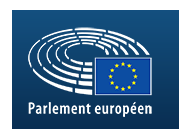Document type: Written answer from the European Commission
Authors: Question: Sylwia Spurek. Answer: Ms Kyriakides on behalf of the European Commission
Question: The report by the Cambridge University Animal Welfare Information Service entitled ‘The welfare of ducks during foie gras production’ states that ‘the reduction in the liver’s ability to detoxify, as indicated by a slower BSP clearance, longer BSP half-life and raised liver enzymes at the end of the force-feeding period, are all clear evidence of clinical pathology’. The fact that foie gras production is considered legal in some countries does not overrule other EU norms on animal health, animal welfare and food safety. I would therefore like to ask the Commission the following questions:
1If this information was already in its possession, what actions has it taken to end a practice that is bound to cause clinical pathology in farm animals?
2 If it was not previously aware of the above-mentioned statement, how does intend to respond?
3 Does it consider food produced from animals that present clinical pathology fit for human consumption?
Answer: The Commission is aware of the report mentioned by the Honourable Member published in 2015. However, scientists have different opinions regarding the extent to which the welfare of animals is compromised during the production of foie gras.
Article 13 of the Treaty on the Functioning of the European Union states that: "In formulating and implementing the Union's agriculture, fisheries, transport, internal market, research and technological development and space policies, the Union and the Member States shall, since animals are sentient beings, pay full regard to the welfare requirements of animals, while respecting the legislative or administrative provisions and customs of the Member States relating in particular to religious rites, cultural traditions and regional heritage". Some Member States consider the production of foie gras as a cultural tradition and a regional heritage that the Union must respect.
The Commission is not aware of evidence indicating that foie gras represents a risk for human consumption.






